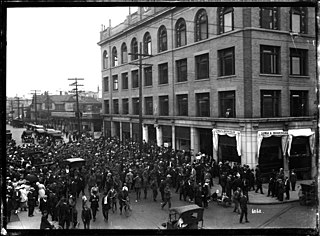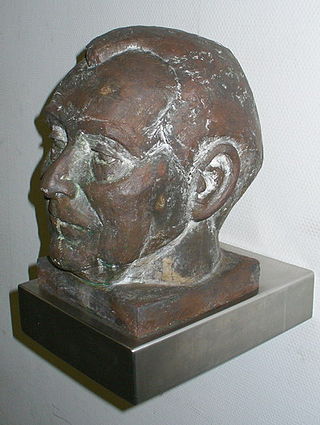Labour laws, labour code or employment laws are those that mediate the relationship between workers, employing entities, trade unions, and the government. Collective labour law relates to the tripartite relationship between employee, employer, and union.
A minimum wage is the lowest remuneration that employers can legally pay their employees—the price floor below which employees may not sell their labor. Most countries had introduced minimum wage legislation by the end of the 20th century. Because minimum wages increase the cost of labor, companies often try to avoid minimum wage laws by using gig workers, by moving labor to locations with lower or nonexistent minimum wages, or by automating job functions. Minimum wage policies can vary significantly between countries or even within a country, with different regions, sectors, or age groups having their own minimum wage rates. These variations are often influenced by factors such as the cost of living, regional economic conditions, and industry-specific factors.
Collective bargaining is a process of negotiation between employers and a group of employees aimed at agreements to regulate working salaries, working conditions, benefits, and other aspects of workers' compensation and rights for workers. The interests of the employees are commonly presented by representatives of a trade union to which the employees belong. A collective agreement reached by these negotiations functions as a labour contract between an employer and one or more unions, and typically establishes terms regarding wage scales, working hours, training, health and safety, overtime, grievance mechanisms, and rights to participate in workplace or company affairs. Such agreements can also include 'productivity bargaining' in which workers agree to changes to working practices in return for higher pay or greater job security.

IG Metall is the dominant metalworkers' union in Germany, making it the country's largest union as well as Europe's largest industrial union. Analysts of German labor relations consider it a major trend-setter in national bargaining.
Finnish national income policy agreements or comprehensive income policy agreements are tripartite agreements between Finnish trade unions, employers' organizations, and the Finnish government. They are policy documents covering a wide range of economic and political issues, such as salaries, taxation, pensions, unemployment benefits, and housing costs. They represent collective bargaining taken to its logical maximum, reaching virtually all wage-earners. Their enforcement is made easier by the universal validity of collective labour agreements. However, they are voluntary agreements and are not considered government legislation, i.e. they do not represent central planning of the economy.
Enterprise bargaining is an Australian term for a form of collective bargaining, in which wages and working conditions are negotiated at the level of the individual organisations, as distinct from sectoral collective bargaining across whole industries. Once established, they are legally binding on employers and employees that are covered by the Enterprise bargaining agreement. An Enterprise Agreement (EA) consists of a collective industrial agreement between either an employer and a trade union acting on behalf of employees or an employer and employees acting for themselves.
Wage regulation refers to attempts by a government to regulate wages paid to citizens.
Trade unions in Germany have a history reaching back to the German revolution in 1848, and still play an important role in the German economy and society.

Labor relations or labor studies is a field of study that can have different meanings depending on the context in which it is used. In an international context, it is a subfield of labor history that studies the human relations with regard to work in its broadest sense and how this connects to questions of social inequality. It explicitly encompasses unregulated, historical, and non-Western forms of labor. Here, labor relations define "for or with whom one works and under what rules. These rules determine the type of work, type and amount of remuneration, working hours, degrees of physical and psychological strain, as well as the degree of freedom and autonomy associated with the work." More specifically in a North American and strictly modern context, labor relations is the study and practice of managing unionized employment situations. In academia, labor relations is frequently a sub-area within industrial relations, though scholars from many disciplines including economics, sociology, history, law, and political science also study labor unions and labor movements. In practice, labor relations is frequently a subarea within human resource management. Courses in labor relations typically cover labor history, labor law, union organizing, bargaining, contract administration, and important contemporary topics.

In the United States, the minimum wage is set by U.S. labor law and a range of state and local laws. The first federal minimum wage was instituted in the National Industrial Recovery Act of 1933, signed into law by President Franklin D. Roosevelt, but later found to be unconstitutional. In 1938, the Fair Labor Standards Act established it at 25¢ an hour. Its purchasing power peaked in 1968, at $1.60 In 2009, it was increased to $7.25 per hour, and has not been increased since.
A collective agreement, collective labour agreement (CLA) or collective bargaining agreement (CBA) is a written contract negotiated through collective bargaining for employees by one or more trade unions with the management of a company that regulates the terms and conditions of employees at work. This includes regulating the wages, benefits, and duties of the employees and the duties and responsibilities of the employer or employers and often includes rules for a dispute resolution process.
In United States government contracting, a prevailing wage is defined as the hourly wage, usual benefits and overtime, paid to the majority of workers, laborers, and mechanics within a particular area. This is usually the union wage.

The Davis–Bacon Act of 1931 is a United States federal law that establishes the requirement for paying the local prevailing wages on public works projects for laborers and mechanics. It applies to "contractors and subcontractors performing on federally funded or assisted contracts in excess of $2,000 for the construction, alteration, or repair of public buildings or public works".
The Labor policy in the Philippines is specified mainly by the country's Labor Code of the Philippines and through other labor laws. They cover 38 million Filipinos who belong to the labor force and to some extent, as well as overseas workers. They aim to address Filipino workers’ legal rights and their limitations with regard to the hiring process, working conditions, benefits, policymaking on labor within the company, activities, and relations with employees.

Wage theft is the failing to pay wages or provide employee benefits owed to an employee by contract or law. It can be conducted by employers in various ways, among them failing to pay overtime; violating minimum-wage laws; the misclassification of employees as independent contractors; illegal deductions in pay; forcing employees to work "off the clock", not paying annual leave or holiday entitlements, or simply not paying an employee at all.

The 1992 Southern California drywall strike was a strike by Mexican and Mexican American drywall hangers, many of whom were undocumented, for fair wages and health insurance from contractors, who stole two billion dollars a years in income taxes, social security, and worker's compensation payments from the workers and collaborated with the local police to repress the organizers. Jesus Gomez, leader of the strike, received threats and had shots fired at his home, while key organizers were tailed by the police and even followed with helicopters. Eventually aligning with the United Brotherhood of Carpenters and Joiners, the strikers succeeded in getting union contracts that ensured fair wages and benefits. The strike left the residential construction industry in a different state. While the industry remained an open shop, contractors were forced to pay Mexican workers with wages and benefits closer to that of the white workers.

Willi Bleicher was one of the best known and, according to at least one source, one of the most important and effective German trades union leaders of the post-war decades.

Germany's minimum wage is €12 per hour, pre-tax since 1 October 2022. The legislation was introduced on January 1, 2015, by Angela Merkel's third government, a coalition between the SPD and the CDU. The implementation of a minimum wage was the SPD's main request during the coalition's negotiations as its central electoral promise during the 2013 federal election campaign. Previously, Germany had minimum wages only in specific sectors, negotiated by trade unions, and some were below the minimum wage level introduced in 2015.








